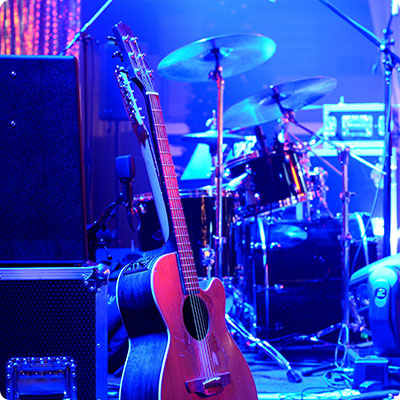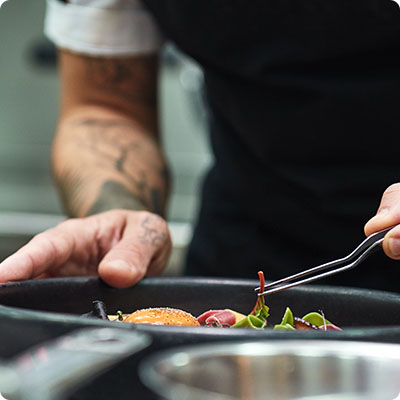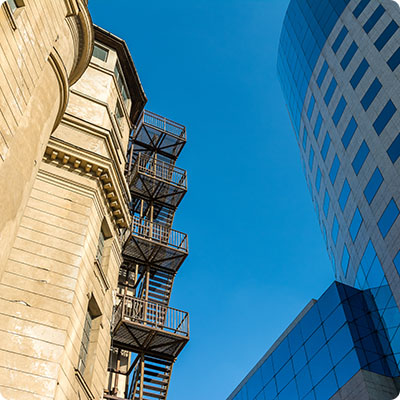Prelude to the history of Hong Kong cinema
In all likelihood, the history of Hong Kong cinema dates back to the very beginnings of the cinema, when a film crew from the Lumière brothers visited in 1896. But it wasn't until 1909 that the first feature film was shot on location by the Shanghai-based Asia Film Studio. The Robbery of the Roast Duck, directed by filmmaker-actor Liang Shaobo and starring future Hong Kong cinema figure Li Beihai, would mark the first steps of the seventh art on the territory. Four years later, American Benjamin Brosky, founder of the Asia Film Studio, co-founded Huamei, Hong Kong's first studio, with Li Minwei, who would become the father of local cinema. In 1924, this same filmmaker produced the country's very first feature film, Rouge, featuring one of the fables taken from Liaozhai Zhiyi, the famous collection of fantastic tales written by Pu Songling in the 18th century.
In the 1930s, the advent of talking pictures and the region's special status vis-à-vis China led to the emergence of new production structures. In 1925, the Shaw brothers Runje, Runme and Runde joined forces to found the Tianyi Film Company, which later became the famous Shaw Brothers Ltd in 1958. This and other studios encouraged the development of wuxia, historical martial arts films, as well as Cantonese operas.
Kung fu and more
Throughout the second half of the twentieth century, Hong Kong cinema produced more and more films, while remaining within the genres it had already established before the war. Cantonese operas were joined by contemporary melodramas, in which actress and singer Julie Yeh Feng shone in the 1960s. For its part, the Shaw brothers' studio grew in stature and produced increasingly successful films, despite growing rivalry with the Cathay Film Company, which also produced wuxia, kung fu films and dramas at a rate of over 200 films a year. It was the Shaw Brothers studio that finally prevailed in the 1970s, popularizing Mandarin-language kung fu cinema with flagship titles such as The Iron Hand (1972), The Shaolin Executioners (1977) and Five Deadly Venoms (1978), all of which became cult hits with international audiences. During this period, kung fu also saw its first superstars appear on the silver screen. Bruce Lee, whose American career had failed to take off, arrived in Hong Kong thanks to the Golden Harvest studio founded by former Shaw executives, and became an international star thanks to The Big Boss (1971) and La fureur de vaincre (1972). It was also Golden Harvest that signed Jackie Chan, ushering in twenty years of explosive cinema both on screen and at the box office. In the years that followed, Hong Kong cinema continued to conquer the world, broadcasting more and more in neighbouring countries, but also flooding international markets with productions of sometimes dubious quality. Above this cinematic tidal wave, the Hong Kong New Wave is already taking shape, full of the talents of tomorrow.
From the nineties to the present day
Tsui Hark, John Woo, Mabel Cheung, Wong Kar-wai - these are names that are no strangers to red-carpet-loving cinephiles. Talents who have won over the major international festivals with films such as In the Mood for Love (2000), winner of the César for Best Foreign Film and the Best Actor Award at the Cannes Film Festival for its actor Tony Leung Chiu-wai. Wong Kar-wai's masterpiece, the film also featured Hong Kong actress Maggie Cheung, who toured both Asia and Europe, where she played one of the lead roles in Olivier Assayas' Irma Vep (1996). At the same time, John Woo became a world-famous director with Volte-Face (1997), starring John Travolta and Nicolas Cage, before shooting Mission Impossible 2, which propelled the franchise to new box-office heights.
Nevertheless, the turn of the century was marked by the decline of the Hong Kong industry, severely impacted by the handover and a victim of its own disproportionate growth. Closed in the 2010s, Shaw Studios is now derelict. But some urban explorers didn't hesitate to walk through the doors, and the results of these impromptu but fascinating visits can be discovered on the web, bearing witness to a fallen greatness of international cinema.
Iconic shoots and mega robots
Since the 2010s, Hong Kong and Macau have played host to a large number of Hollywood shoots, not least because of the striking resemblance between the Hong Kong skyline and that of major American cities. For example, the second part of Christopher Nolan's Batman trilogy used several of the city's iconic locations, including the International Finance Centre, from which Christian Bale soared as the Dark Knight in The Dark Knight (2009). Other celebrities to have stopped off in Hong Kong include Pierce Brosnan aka James Bond in Die Another Day (2002), Chris Hemsworth in Michael Mann's Blackhat (2015), Joseph Gordon-Levitt in Snowden (2016) and Scarlett Johansson in Ghost in the Shell (2017). But it's undoubtedly the giant robots and monsters that have made the biggest impression on moviegoers with their appearances in Hong Kong Bay, such as Godzilla in Godzilla vs. Kong (2021). Titanic battles reminiscent of Guillermo del Toro's Pacific Rim (2013) and Michael Bay's Transformers: Age of Extinction (2014). From Kowloon to Macau, via the New Territories, Hollywood is definitely enjoying ravaging these lofty skyscrapers.
Festivals and highlights
For the best cinema experience in Hong Kong, you're spoilt for choice. But don't miss a visit to M+, the Museum of Asian Cinema, opening in Hong Kong in 2021. Similarly, if you're visiting the region in spring, keep an eye on the program of the Hong Kong International Film Festival, one of Asia's oldest film festivals, and an ideal platform for discovering the diversity of contemporary Asian and international cinema.






